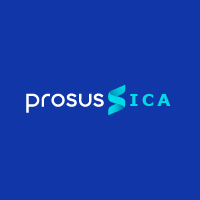
Prosus SICA
View Brand PublisherIdentifying need for assistive technology is a customer issue
Technology makes our lives simpler, but it does not always feel that way. It sometime feels that developers and users are looking in different directions. Real innovation needs to deliver technologies that feel like the outcome of collaboration between developers and users.
This case for utility in technology – addressing real user needs – is no-where more critical than in areas of disability. According to the WHO, one in six people lives with some form of disability: yet most books in India are still published without appropriate formats for the blind, while wheelchairs can barely withstand India’s treacherous roads, which makes their use both painful and uneconomic.
That is why Prosus and its partners - Invest India, the country’s national investment promotion and facilitation agency, Social Alpha, an initiative supported by Tata Trusts - has launched the Prosus Social Impact Challenge for Accessibility (SICA). It is a bold contest to encourage entrepreneurship in assistive technologies for people with disabilities. Launched in August, the winners will be announced in early December. They will receive a total of Rs 1,65,00,000 over three years to bring their ideas to fruition, with mentoring, product development and marketing.
While Prosus’ initiative has been welcomed, advocates who have campaigned long and hard believe it is just a start. Dr. Suresh Nair, CEO and founder of Design Alpha hopes SICA will trigger a change in approach to making a market for assistive technologies. A good start would be an agency that supports entrepreneurs in the entire life cycle of an assistive technology.
Drawing on his more than 30 years in advocating for global product designs and public policies for the differently abled, Nair says, “while their willingness to serve society is not disputed, out of 54,000 odd strong start-ups in India, only a few commercial products came out. The reason for failure is not lack of funding or opportunity, but because they fail to identify need. This is especially so in healthcare, where the time to establish ‘proof of concept,’ is lengthy but necessary. I only call it innovation when you finally have someone to buy what you’re selling.”
Aileen O’Toole, Chief People Officer at Prosus agrees, “the need for assistive technology to aid people with disabilities is really a customer issue. Seen as such, it can provide a major business opportunity for entrepreneurs.”
One barrier between supply and demand is the innovator’s unconscious bias about the differently abled, says Dr Sam Taraporevala, executive director at the Xavier's Resource Centre for the Visually Challenged (XRCVC) and retired associate professor and head of the department of sociology at St. Xavier's College in Mumbai.
“This is where advocacy and raising awareness become particularly important, something XRCVC and now Prosus SICA are doing at a national scale,” he says. The XRCVC, besides functioning as a total resource centre for the visually impaired, also participates in assistive technology testing and research and supports individuals and organizations in navigating hurdles.
Dr Taraporevala recalls XRCVC’s growth from an inclusive educational entity to a national advocacy and support centre for the visually impaired. “In 2005, we requested a publisher to convert an 800-page economics book into one with an accessible format, but they refused on grounds of copyright issues. The publisher said – ‘sure, get a letter from the Minister of Education’”.
Dr Taraporevala ignored the publisher’s put down, but it did inspire an idea. He began to advocate for an amendment of the Copyright Act and won a concession that allowed non-profit replication for persons with visual disability. To this day, he maintains that the most efficient method of ensuring access is through books that release with accessible formats to begin with.
Recognising the electrifying pace of change, Neha Trivedi, project consultant at XRCVC, says, “with advancements in artificial intelligence, mainstream technology can and must also be assistive in their approach. If there is a difference in the accessibility offered by an Apple iPhone and an Android, then innovators must try to bridge the gap.”
Dr Nair, Dr Taraporevala, and Trivedi are all jury members of the SICA challenge, and they hope the finalists genuinely incorporate both user feedback and a high measure of product research.
To find out more about Prosus SICA, participants can log onto the Startup India Hub.







